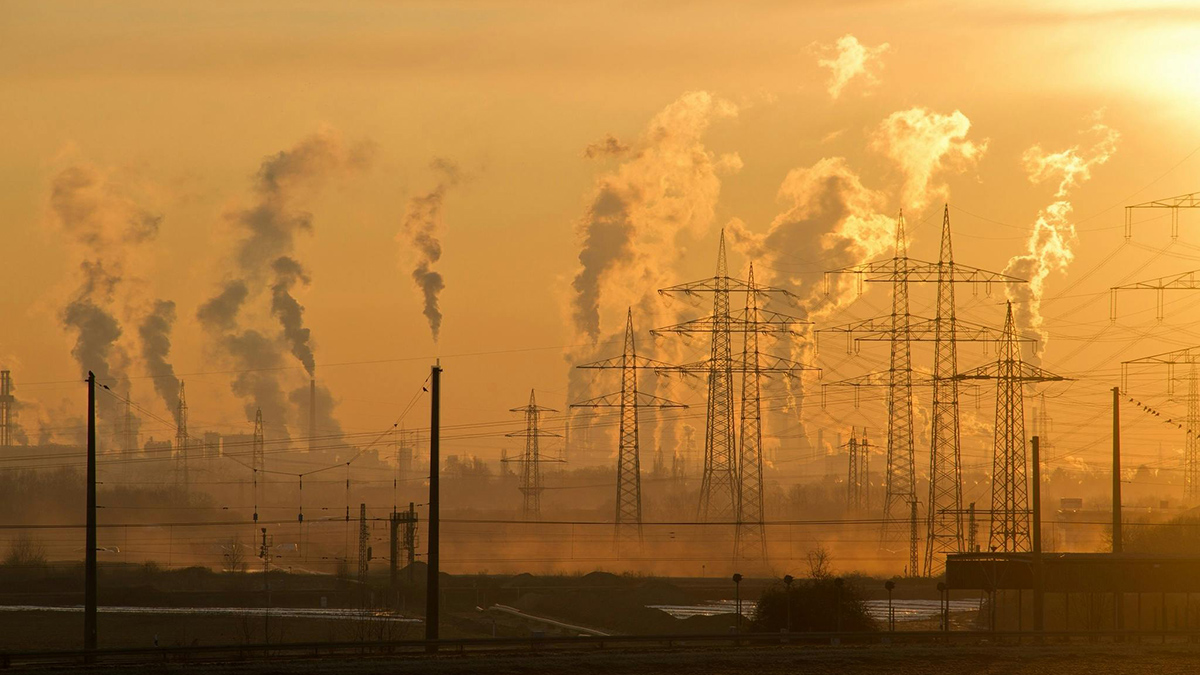The world is on course to see global temperatures rise as much as 2.9°C above preindustrial levels if current climate action commitments remain unchanged, according to a report released today by the United Nations Environment Programme (UNEP).
The UNEP Emissions Gap Report is a yearly review of the gap between countries’ current climate action commitments and what those commitments should be to keep Earth’s warming under the 1.5°C limit set by the Paris Agreement, a legally binding international treaty on climate change.
“The emissions gap is more like an emissions canyon.”
This year’s report found yet again that current efforts by countries to limit warming are insufficient in the face of accelerating climate disasters and still-increasing emissions. The most optimistic scenario presented in the report forecasts that there is just a 14% chance that humanity will limit warming to 1.5°C, pointing toward a likely future of worsening floods, heat waves, disease, and crop losses.
“The emissions gap is more like an emissions canyon,”said António Guterres, the secretary-general of the United Nations. “A canyon littered with broken promises, broken lives, and broken records.” Although progress to limit emissions has been made since the Paris Agreement went into effect in 2016, many countries have not upheld all of their commitments.
A World Above 1.5°C
Average global temperatures briefly surpassed 2°C above preindustrial levels on Friday, according to preliminary data from the European Centre for Medium-Range Weather Forecasts. This year, 86 days were recorded with average global temperatures surpassing the 1.5°C goal. And though countries have made progress, greenhouse gas emissions worldwide are still rising: From 2021 to 2022, global emissions of planet-warming gases increased by 1.2%, setting a new emissions record.
The Paris Agreement’s 1.5°C goal marks a warming limit above which hundreds of millions of people will face worsening climate impacts such as frequent and life-threatening heat waves, severe droughts, reductions in water availability, catastrophic flooding, and reduced crop yields.
Current pledges are not enough to avoid these consequences, according to the report. Instead, current mitigation efforts are on track to allow an increase of up to 2.9°C—nearly double the amount of warming allowed by the Paris Agreement.
“What we need to see at the COP is a massive, expedited movement on decarbonization,” said Inger Andersen, the executive director of UNEP.
Accelerating Mitigation
“Leaders must drastically up their game now with record ambition, record action, and record emissions reductions.”
According to the report, countries must slash their predicted 2030 emissions levels by 42% to remain under the 1.5°C limit. To cut emissions this dramatically, rapid climate action will be needed, the authors write. “Leaders must drastically up their game now with record ambition, record action, and record emissions reductions,” Guterres said.
In a press conference, Andersen emphasized the need for world leaders to halt work on new fossil fuel infrastructure, as well. “Governments can’t keep pledging to cut emissions under the Paris Agreement and then green-lighting huge fossil fuel projects,” she said.
Per capita emissions also differ widely across countries. The United States, for example, accounts for 4% of the current world population but has contributed 17% of all warming since 1850. Inequalities between countries’ emissions highlight the need for countries with greater responsibility to accelerate their climate actions and contribute to funds, such as the Green Climate Fund, meant to help developing economies adapt to and mitigate climate change, said Guterres.
The report’s findings will be used as input in the world’s first Global Stocktake, an inventory of the world’s progress on climate action that will be completed at the upcoming Conference of the Parties (COP28). There has been negligible progress on cutting emissions since last year’s meeting, COP27, said Anne Olhoff, the chief scientific editor of the report.
In response to the Global Stocktake, countries must commit to tripling their renewables capacity, doubling energy efficiency, and bringing clean power to all people by 2030, Guterres said. “Otherwise, we are simply inflating the lifeboats while breaking the oars.”
—Grace van Deelen (@GVD__), Staff Writer

